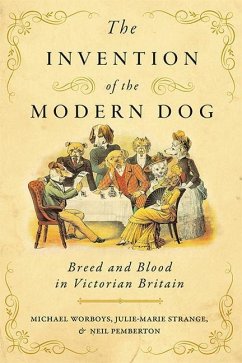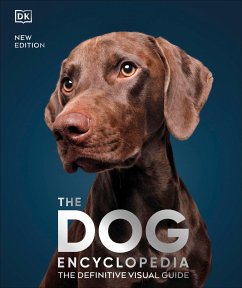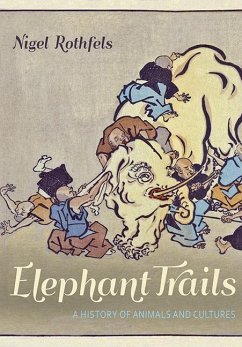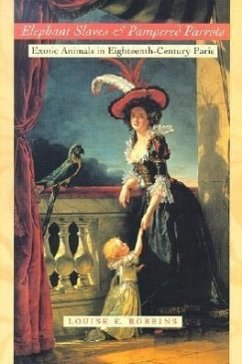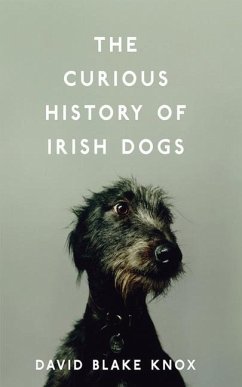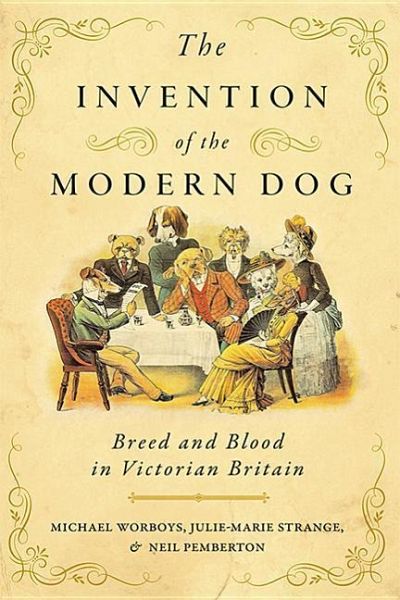
The Invention of the Modern Dog
Breed and Blood in Victorian Britain
Versandkostenfrei!
Versandfertig in über 4 Wochen
40,99 €
inkl. MwSt.
Weitere Ausgaben:

PAYBACK Punkte
20 °P sammeln!
For centuries, different types of dogs were bred around the world for work, sport, or companionship. But it was not until Victorian times that breeders started to produce the dogs we know today: discrete, differentiated, standardized breeds, ever more numerous and fancy. In The Invention of the Modern Dog, Michael Worboys, Julie-Marie Strange, and Neil Pemberton explore when, where, why, and how Victorians invented the modern way of ordering and breeding dogs. Though talk of "breed" was common before this period in the context of livestock, the modern idea of a dog breed defined in terms of sh...
For centuries, different types of dogs were bred around the world for work, sport, or companionship. But it was not until Victorian times that breeders started to produce the dogs we know today: discrete, differentiated, standardized breeds, ever more numerous and fancy. In The Invention of the Modern Dog, Michael Worboys, Julie-Marie Strange, and Neil Pemberton explore when, where, why, and how Victorians invented the modern way of ordering and breeding dogs. Though talk of "breed" was common before this period in the context of livestock, the modern idea of a dog breed defined in terms of shape, size, coat, and color arose during the Victorian period in response to a burgeoning culture of competitive dog shows. The authors explain how breeders, exhibitors, and showmen borrowed ideas of inheritance and pure blood, as well as breeding practices of livestock, horse, poultry, and other fancy breeders, and applied them to a species that was long thought about solely in terms of work, sport, and companionship. The new dog breeds embodied and reflected key aspects of Victorian culture, and they quickly spread across the world, as some of Britain's top dogs were taken on stud tours or exported in a growing international trade. Connecting the emergence and development of certain dog breeds to both scientific understandings of race and blood as well as Britain's posture in a global empire, The Invention of the Modern Dog demonstrates that studying dog breeding cultures allows historians to better understand the complex social relationships of late-nineteenth-century Britain. "Charles Darwin, Charles Dickens and P. T. Barnum walk into a pub . . . a classic comic set-up that can only lead to one punch line: The Invention of the Modern Dog. This chronicle--by science historians Michael Worboys and Neil Pemberton and historian Julie-Marie Strange--charts the confluence of biology, class, and popular entertainment that resulted in an unprecedented burst of nineteenth-century canine breeding. That tumult, they argue, stares out at us today from the eyes of our dogs."--Nature "Reveals how the Victorians invented the modern way of ordering and breeding man's best friend."--The Sunday Post "In The Invention of the Modern Dog, the authors show how our modern attitudes to breeds have been shaped by Victorian cultural ideals. The book makes for a fascinating read for anyone interested in the origins of today's dog breeds."--Pets Magazine "Worboys, Strange and Pemberton have produced a magnificent book . . . a wonderfully lively text that traces the sources of our own obsession with doggy design and offers a gentle warning about what is at stake when we fiddle too far."--The Guardian "Highly entertaining and plentifully illustrated."--Times Literary Supplement




